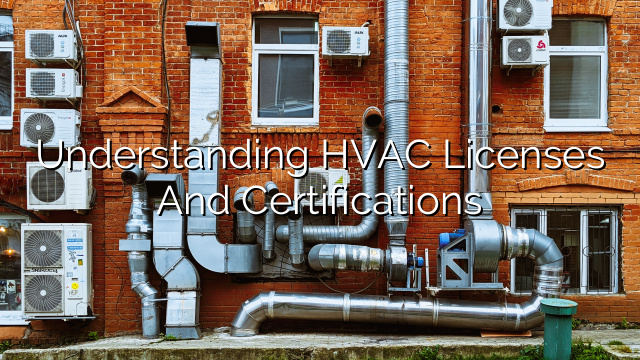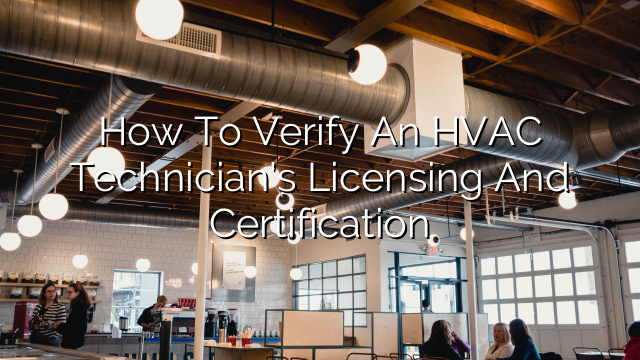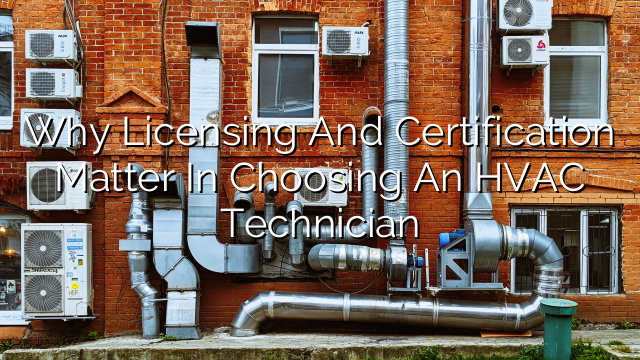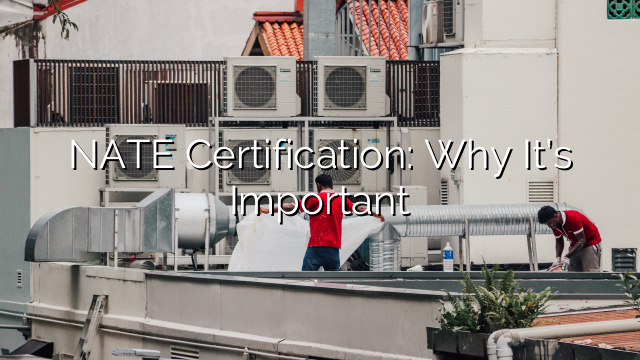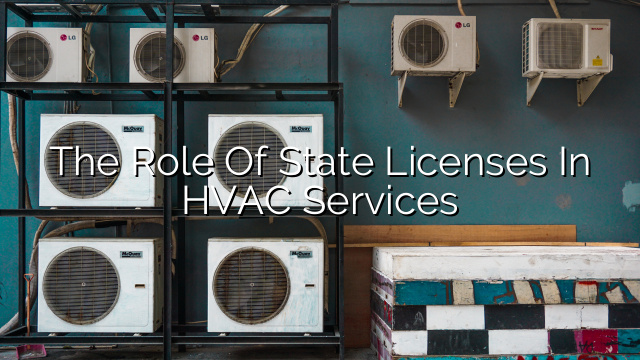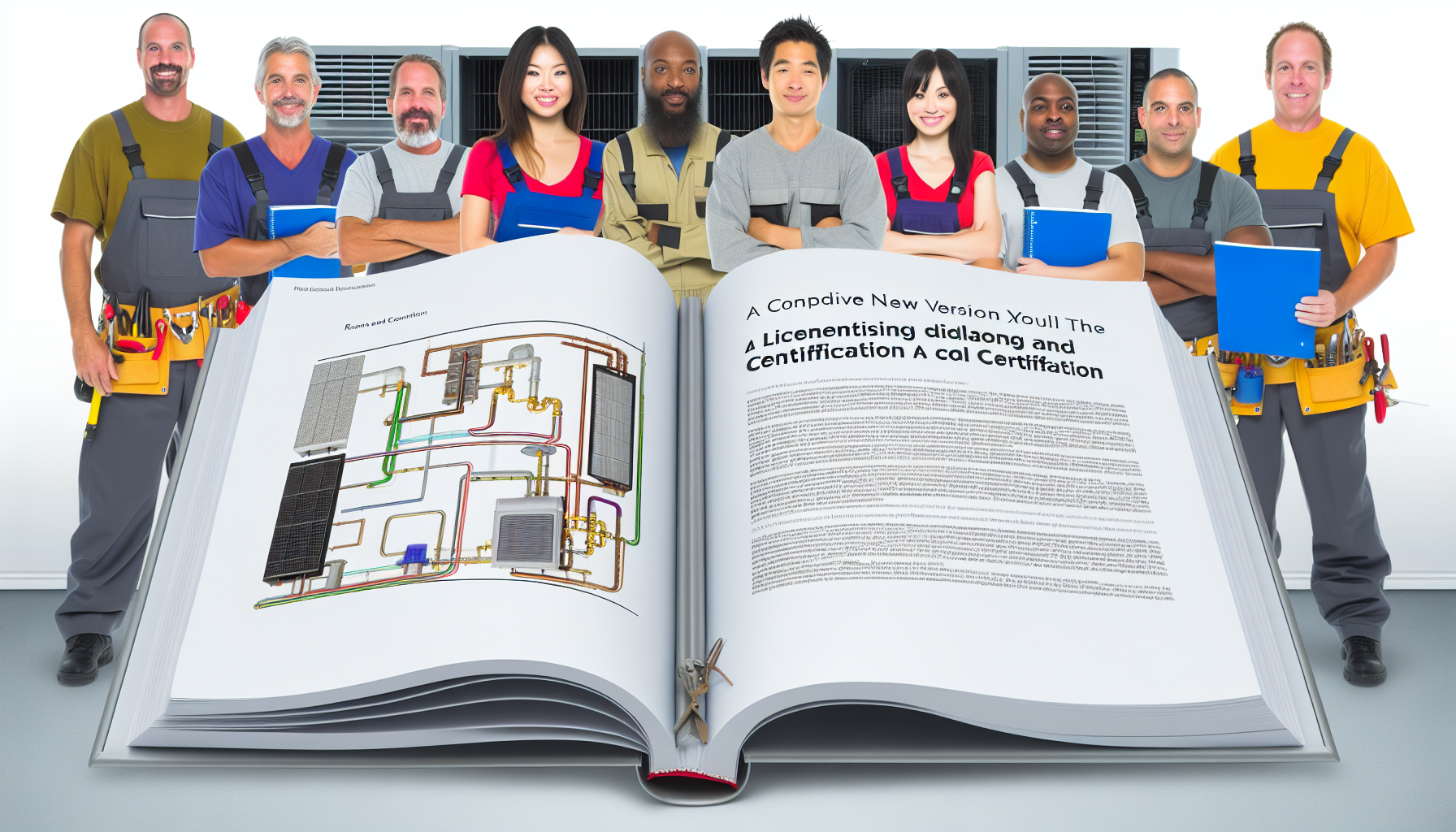Understanding HVAC Licenses and Certifications
When it comes to hiring an HVAC technician, it’s important to understand the different licenses and certifications in the industry. These credentials ensure that the technician has the necessary knowledge and skills to properly install, repair, and maintain HVAC systems. In this blog post, we’ll take a closer look at what these licenses and certifications mean and why they are important.
HVAC License Requirements
Obtaining an HVAC license is a requirement in many states for anyone working in the industry. The specific requirements for licensure may vary from state to state, but generally, individuals must meet the following criteria:
- Educational Requirements: HVAC technicians must typically complete a formal training program in heating, ventilation, air conditioning, and refrigeration. These programs are offered by trade schools, vocational schools, and community colleges.
- Experience: In addition to formal education, technicians usually need to gain a certain amount of on-the-job experience in the HVAC field. This experience can be obtained through apprenticeships or working under a licensed technician.
- Examination: After meeting the educational and experience requirements, individuals are typically required to pass a licensing examination. This exam tests the technician’s knowledge of HVAC systems, safety procedures, and local building codes.
Certifications for HVAC Technicians
In addition to obtaining a license, HVAC technicians can also earn certifications to demonstrate their expertise in specific areas of the industry. These certifications are offered by organizations such as the Environmental Protection Agency (EPA) and North American Technician Excellence (NATE). Here are some popular certifications for HVAC technicians:
- EPA 608 Certification: This certification is required by the EPA for HVAC technicians who work with refrigerants. It demonstrates that the technician understands the proper handling and disposal of refrigerants, as well as the regulations surrounding their use.
- NATE Certification: NATE offers a variety of certifications for HVAC technicians, including certifications for installation, maintenance, and service of HVAC systems. These certifications are widely recognized and respected in the industry.
- HVAC Excellence Certification: Similar to NATE, HVAC Excellence offers certifications for technicians in various areas of HVAC work. This certification demonstrates a high level of knowledge and skill in the industry.
The Importance of Licenses and Certifications
So why are licenses and certifications important when hiring an HVAC technician? Here are a few reasons:
- Quality Assurance: By hiring a licensed technician, you can have confidence that they have met the necessary education, experience, and examination requirements. This ensures that they have the knowledge and skill to perform HVAC work safely and correctly.
- Compliance: HVAC licenses are often required by state and local regulations. By hiring a licensed technician, you can ensure that your HVAC system is installed and maintained in compliance with these regulations.
- Specialized Expertise: Certifications demonstrate that a technician has specialized knowledge and skills in specific areas of HVAC work. This can be particularly valuable if you have a complex or specialized HVAC system that requires expertise beyond the basics.
When hiring an HVAC technician, be sure to ask about their licenses and certifications. A reputable technician will be proud to share this information and should have no problem providing proof of their credentials.
FAQs
Q: How do I verify if an HVAC technician is licensed?
A: To verify if an HVAC technician is licensed, you can contact your state’s licensing board or visit their website. They will have a database of licensed professionals that you can search.
Q: Are all HVAC certifications the same?
A: No, not all HVAC certifications are the same. Some certifications are more prestigious and widely recognized in the industry. NATE and HVAC Excellence certifications, for example, are highly regarded and demonstrate a technician’s expertise.
Q: Are there any risks in hiring an unlicensed HVAC technician?
A: Hiring an unlicensed HVAC technician can be risky. They may not have the necessary knowledge and skills to properly install or repair your HVAC system, which can lead to further issues down the line. Additionally, if the technician is not licensed, you may be liable for any damages or injuries that occur during the job.
Q: How long does it take to become a licensed HVAC technician?
A: The time it takes to become a licensed HVAC technician can vary. It typically involves completing a formal training program, gaining on-the-job experience, and passing a licensing examination. This process can take anywhere from a few months to a couple of years.
Q: Is continuing education required for HVAC technicians?
A: Continuing education requirements for HVAC technicians vary by state. Some states require technicians to complete a certain number of hours of continuing education each year to maintain their license. This ensures that technicians stay up to date with the latest industry advancements and safety procedures.

